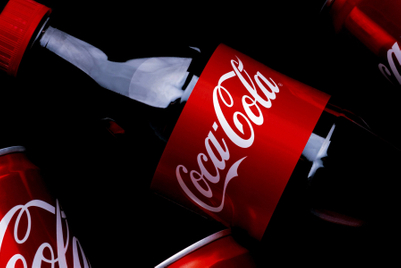Coca-Cola has ventured into the alcohol market in Japan with the launch of Lemondo, a chu-hi drink available in varying strengths ranging from 3 to 7%. (Chu-hi is traditionally a combination of shochu, fruit juice and soda water.)
The new brand is the only alcoholic product in the beverage giant’s portfolio. According to reports, Coca-Cola sees strong potential for chu-hi in Japan, but does not plan to expand this pilot venture to other markets.
To promote Lemondo, Coca-Cola is running a campaign featuring Hiroshi Abe, a popular Japanese actor, as an artisanal bartender. Abe is shown making the drink by hand with fresh fruit, as it would be made in a typical izakaya.
Abe’s patron initially doesn’t seem to have great expectations for the drink, but is awed to learn that it contains the pulp of a whole lemon, which dissipates slowly when added to the shochu. To emphasise the apparent care with which the drink is made, Coca-Cola describes it as “kodawari lemon sour”—a chu-hi for the most discerning drinker.
Established chu-hi brands produced by Japanese companies include Kirin’s Hyouketsu (which uses vodka rather than shochu), Suntory’s Strong Zero, and Takara’s Can Chu-hi.
In a report detailing Coca-Cola’s planned foray into the market in March, the FT indicated that the move was spurred by declining fizzy drink sales. That may or may not be the case: Coca-Cola has a wide portfolio in Japan that includes various teas and mineral water, where its flagship brand has long accounted for less than a quarter of sales. Japan is the company’s most profitable market.
Campaign’s view: In featuring Hiroshi Abe, the advertising around this brand deviates from the rule that Coca-Cola’s Japan marketing head Khalil Younes recently outlined—to use global celebrities for domestic brands, domestic celebrities for global brands. But rules are made to be broken, and people should respond well to the casting. The concept behind the ad is not exactly earth-shaking, but it’s nicely made, and the positioning does something to set it apart: most competitors make little effort to imply any sense of class, craftsmanship or wholesome ingredients. Whether it's believable or not is another matter.
From our perspective, chu-hi could find a receptive audience in a number of Asian markets, so it’s surprising that Coca-Cola (or indeed Japanese producers) have no interest in looking beyond Japan.


.jpg&h=334&w=500&q=100&v=20250320&c=1)


.png&h=334&w=500&q=100&v=20250320&c=1)




.png&h=334&w=500&q=100&v=20250320&c=1)

.jpg&h=268&w=401&q=100&v=20250320&c=1)



.png&h=268&w=401&q=100&v=20250320&c=1)


